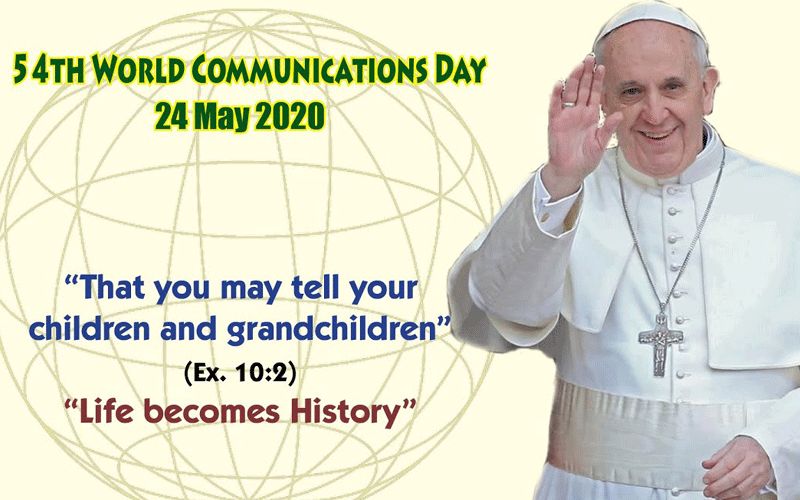He continued, “It is true the facts before us are rather alarming and sometimes even worrisome; but I do believe an optimistic and positive hope, given in messaging, will help all of us to weather this storm, to face the difficulties that are coming to us. So, we thank you for the message and we also thank you, because you keep telling us and informing us even about the positive things, even some good, wonderful stories.”
Meanwhile, the Bishop of Nigeria’s Abeokuta Diocese, Peter Odetoyinbo urged media practitioners to focus more on stories that promote harmony, unity and peace during and after the coronavirus pandemic.
The Nigerian Prelate who made the call in his message to commemorate the 54th World Communications Day cautioned media practitioners against all forms of bigotry, discrimination and exploitation with the use of the media.
He appreciated media practitioners for their tireless efforts in ensuring that “people are well informed and carried along in the fight against COVID-19.”
He recognized efforts of those who are facilitating the telling of human interest stories saying they “have sacrificed a lot by portraying the good sides of the experience in the care and concern of the government, families, sacrifices of doctors, nurses, security agents as well as the prayers offered by priests and religious leaders to end the pandemic.”
(Story continues below)
“The time has been a challenging one with the COVID-19 pandemic; we hear and experience different versions of the story daily, from conspiracy theories to statistics of deaths and new cases, the fall of vibrant economies to rising unemployment, the poverty in the land, and the responses of the World Health Organization (WHO), World Bank, the Nigerian government and political leaders, all of these stories create suspicion, panic, anxiety,” Bishop Peter Odetoyinbo said.
He continued, “But then the story is not all negative and tainted; we also hear stories of efforts of government, groups and individuals towards helping others through the distribution of palliatives; these are good stories that please God and bind humanity.”
Still in Nigeria, the Archbishop of Lagos, Alfred Adewale Martins called on media practitioners to tell original stories that bring out the truth.
“To tell our own stories, we must possess divine wisdom, have courage, patience, and discernment to counter falsehood; what the Holy Father called “deep fake” news of our time. But we must tell our stories again and again,” Archbishop Adewale told journalists May 23 at the Holy Cross Cathedral in Lagos.
World Communications Day takes place each year on the Sunday before Pentecost.
In his message Sunday, May 24 at the Vatican’s Regina Coeli, Pope Francis prayed that the event of the World Communications Day “encourage us to tell and share constructive stories that help us to understand that we are all part of a story that is larger than ourselves, and can look forward to the future with hope if we truly care for one another as brothers and sisters.”
Jude Atemanke is a Cameroonian journalist with a passion for Catholic Church communication. He holds a Bachelor’s Degree in Journalism and Mass Communication from the University of Buea in Cameroon. Currently, Jude serves as a journalist for ACI Africa.








